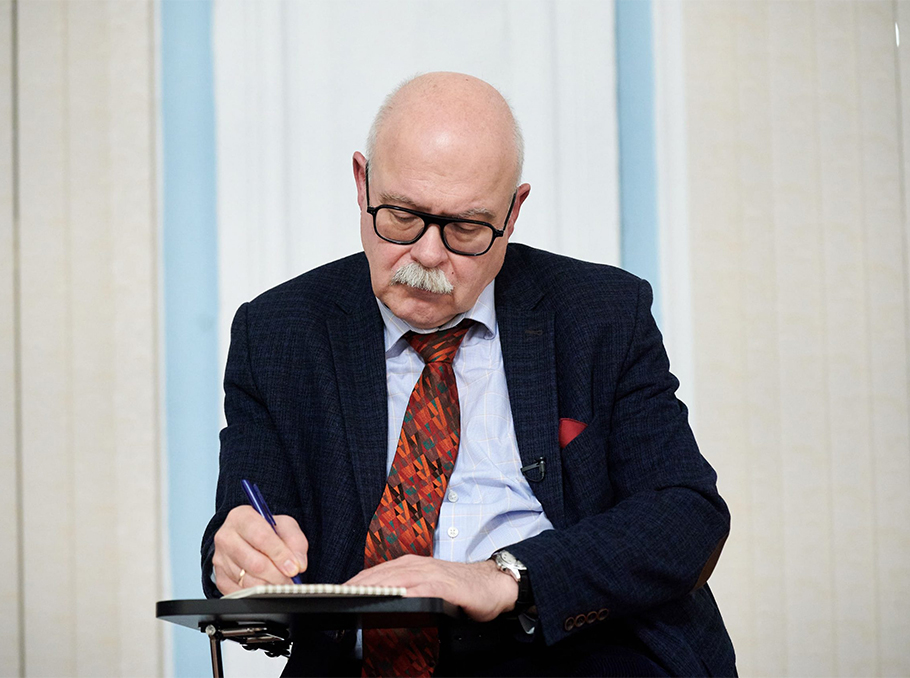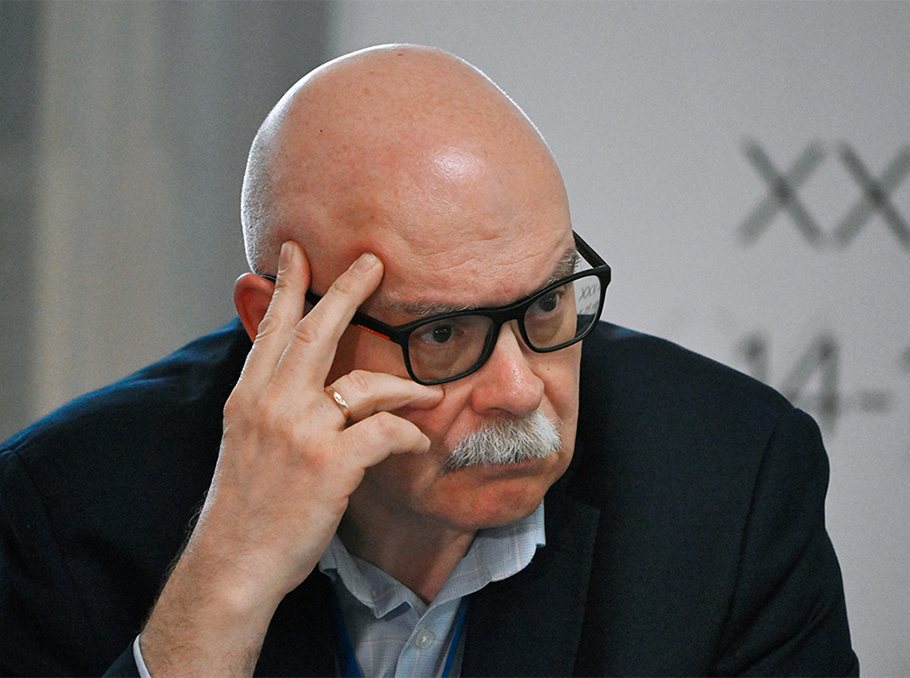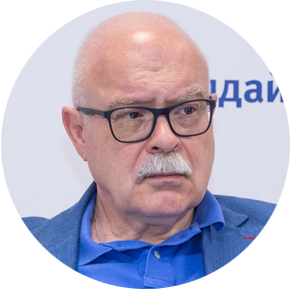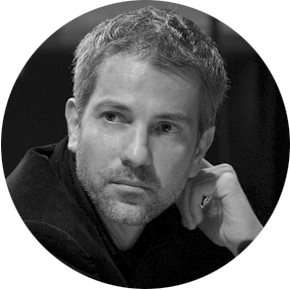Mediamax’s interview with Dmitry Trenin, research professor of the Faculty of World Economy and World Politics at the Higher School of Economics and leading researcher at the Center for International Security of the National Research Institute of World Economy and International Relations of the Russian Academy of Sciences.
Dmitry Trenin was Director of the Carnegie Moscow Center from 2008-2022.
- In your article “Russia’s allied policy: What to do and what to change?” published in late August 2020, about a month before the war, you wrote that Armenia’s value for Russia is not too big. Can we say that after the defeat in the 2020 war, Armenia’s value has further decreased?
- I think, first of all, it is not that Armenia has changed, but the general situation in the region. The changes inside Armenia were rather a consequence of what happened during the war and what changed the balance of power in the South Caucasus.
Today, Russia’s position has changed not only towards Armenia but the South Caucasus in general.
I will not say that a disaster occurred for Russia, but in any case, the changes are serious. Today, Turkey is probably a more significant player in the South Caucasus than Russia. In addition, in the context of the war in Ukraine, Western countries, primarily the United States and partly the United Kingdom, began to attach much more importance to the post-Soviet space in case when they distanced themselves from the 2020 war. In general, this war was very peripheral for the Western political class and, in general, for Western society - little was written about it, little was said or thought about it. But now, after Russia’s involvement in the Ukrainian developments, the West thinks there is an opportunity and a need to expand the geopolitical pressure with access to the Caucasus, Middle and Central Asia.
- In the same article you wrote: “The main value of the position on Armenia is in the possibility of maintaining relative stability in Transcaucasia, the balance between Azerbaijan and Armenia, and deterring Turkey’s ambitions. Today, this balance no longer exists.
- Actually, Russia cannot play this game anymore. For many years it had the opportunity to act as a balancer and believed that it could - as the Americans do in the Middle East - sell weapons to one and the other, control the situation in the zone of extinguished or frozen conflict and thus maintain its position in the South Caucasus, not allowing regional powers such as Turkey and world powers such as the United States or even China enter the region. Now Russia does not have such an opportunity, so there can be no talk of any balance between Azerbaijan and Armenia.
At the same time, Russia is interested that a solution be found to the problem of Armenian-Azerbaijani relations. Peace creates more opportunities for Russia than war. If earlier it was possible to say that Russia benefited from this conflict, although I think this is not quite true, now it hopes that a peaceful settlement will create some conditions: first of all, by intensification of economic relations, creation of new transport opportunities, including through the territory of Armenia. We should also keep in mind that the relations between Russia and Georgia have warmed up a bit recently. This is also an interesting factor.
- How fair is the opinion that the fate of the South Caucasus is decided not in the region itself, but in Ukraine? In the sense that after the outbreak of war in Ukraine, Russia does not want or is unable to play the role it had in the first post-war phase.
- I agree with that point of view. But when we say that everything depends on the outcome, we assume that the outcome is somewhere close. But the outcome is very far away, we are probably talking about years. The conflict in Ukraine may freeze on some point for a while, but it will not change the state of hybrid war between Russia and the West. The situation will remain in limbo without a clear final outcome for a long time.
 Dmitry Trenin
Dmitry Trenin
Obviously, priorities have now changed a lot, and we have to mobilize resources in the most important areas. The luxury that Russian foreign policy used to have will no longer exist.
- And the need for Russia to take into account Turkey’s interests in the region will only grow?
- Of course, Turkey remains a very important country for Russia, and the need to take Turkish interests into account, of course, remains. I would also add that Russia has obvious interests in Azerbaijan, and these interests have grown: I mean the North-South corridor which is also one of the connecting threads between Russia and the economies of the Near and Middle East, India, Iran. This is also of strategic importance for Russia. With Europe no longer being Russia’s main economic partner, there is a need to interact more closely with Azerbaijan. The importance of Armenia as a military outpost in relation to Turkey is much smaller in the current conditions. This does not mean that Russia has stopped being interested in Armenia and would like to close this “unpromising direction”. There is nothing of the sort. There is a willingness to work with the government that exists in Armenia, understanding its aspirations and its limitations.
- Many people in Yerevan ask: in light of the difficult situation Armenia is in, and the growing importance of Turkey and Azerbaijan for Moscow, what can Armenia do, to gain competitive advantages and become more interesting for Russia?
- I repeat that Russia has no wish to reduce its presence in Armenia. Armenia today is not a “burden” or “ballast”. In the current circumstances, it is important for Russia to maintain allied relations with Armenia through the CSTO and the EAEU. For this, the relations should be more pragmatic. There is a thing which, if does not disturb the Russian side but somewhat annoys it. This is the resentment against Russia in Armenian society. I believe that Russia does not deserve such criticism. Russia is being asked to, so to speak, harness for Armenia, while Armenia is not going to harness for Russia. Such moments of tension, in my opinion, can be significantly reduced in the case of more pragmatic, more open and more honest relations. I think that Russia is ready for such a new format of relations, which would not be the relations of boss and client, as it was seen by many in Moscow and Yerevan, but the relations of two countries linked by common interests, historical and demographic ties.
 Dmitry Trenin
Dmitry Trenin
You talk about Armenia’s difficult situation. Russia is also in a very difficult situation, with a huge number of sanctions and other forms of pressure from the West. The situation in Russia is quite difficult. It has to wage a hybrid war against the collective West, and I would like Russian partners and allies to understand this, just as Russia understands Armenia. Russia did not obstruct the choice of the Armenian people in 2018, it agreed to live with the government the Armenian people chose. Whatever Putin thinks of the notorious “Sorosians”, he is working with Nikol Pashinyan and quite closely.
- You mentioned the CSTO, which, instead of acting as a guarantor of Armenia’s security, today is actually one of the main irritants in Armenian-Russian relations.
- I would partly argue with this, saying that the CSTO is of little use to Armenia, but the CSTO does not force Armenia to do anything. CSTO members are Russia’s formal allies, but now when Russia is actually at war with the collective West, they take a neutral position. And Russia accepts this as a fact; no one is demanding that the CSTO be dissolved and no one calls on the CSTO to consolidate around Russia. In this sense Russia acts very adaptively and understands what it can demand from its allies and what it cannot. It is not an ideal tool, of course, but it is a burden that at least does not pull you down. Right, it does not help much either. But leaving the CSTO will bring forth unnecessary losses that will not be compensated. Let’s say Armenia withdraws from the CSTO, what does it mean? Will it become a member of NATO? No, it will not. Will it abandon bilateral military relations with Russia? As I understand it, no, although obviously there are circles that demand the withdrawal of Russian forces. No good alternative is seen for Armenia. Of course, Armenia is the one that determines its own fate, its military-political status, but we should look at the situation from different sides and refrain from emotions. We in Russia also have a lot of emotions not related to the Caucasus and Armenia. This should also be kept in mind.
Ara Tadevosyan spoke with Dmitry Trenin
This interview has been prepared as part of a joint project with the Tufenkian Foundation.
![]()





















